Expression and nature of La Jasse's wines
La Jasse's wines are characterised by hand-crafted vintages, produced mainly with Cabernet Sauvignon. The selected vines cohabit with the fauna and flora thanks to the grassing of the rows, the hedges separating the plots, the forests and the garrigue
What is Right in La Jasse's wines ?
The Right (environnemental)
Our aim is to have a positive impact on climate issues and encourage the development of biodiversity
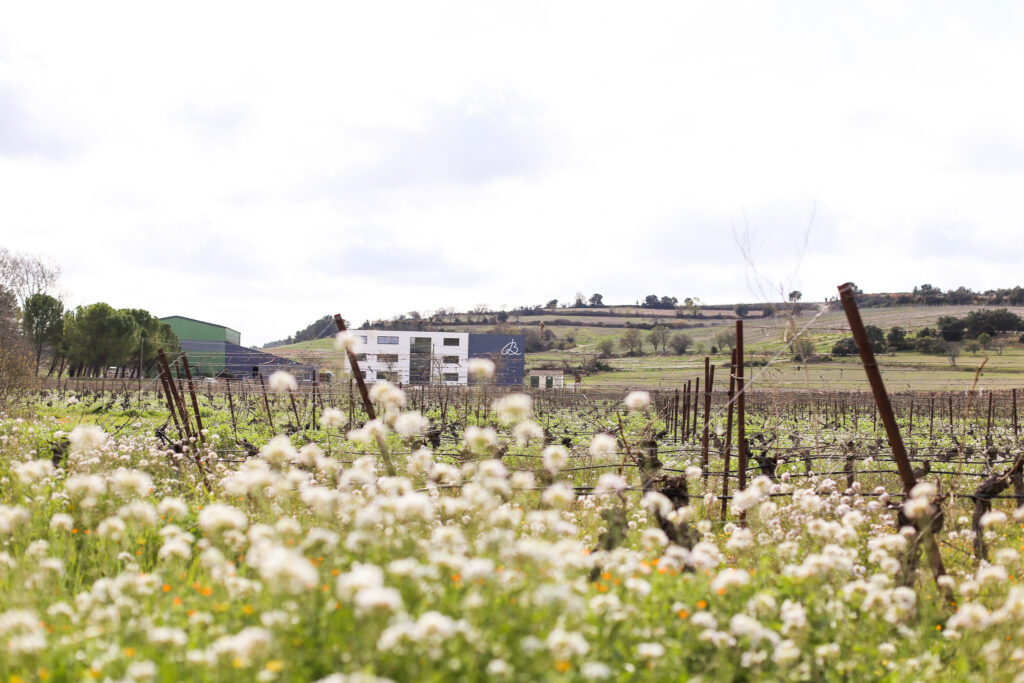
First HEV property in Hérault
In 2013, Domaine de la Jasse was the first company to obtain High Environmental Value certification, validating the implementation of sanitary, environmental and reasoned practices in the vineyards.
Bruno Le Breton and his team are committed to taking concrete steps to reduce the impact of our agricultural activity on the environment.
The requirements are based on four themes:
- Biodiversity
- Phytosanitary strategy
- Fertiliser management
- Water resource management
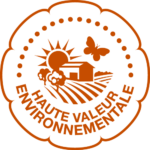
What is Right in La Jasse's wines ?
The Right (social)
We prioritise quality of life and the human element in all our practices.
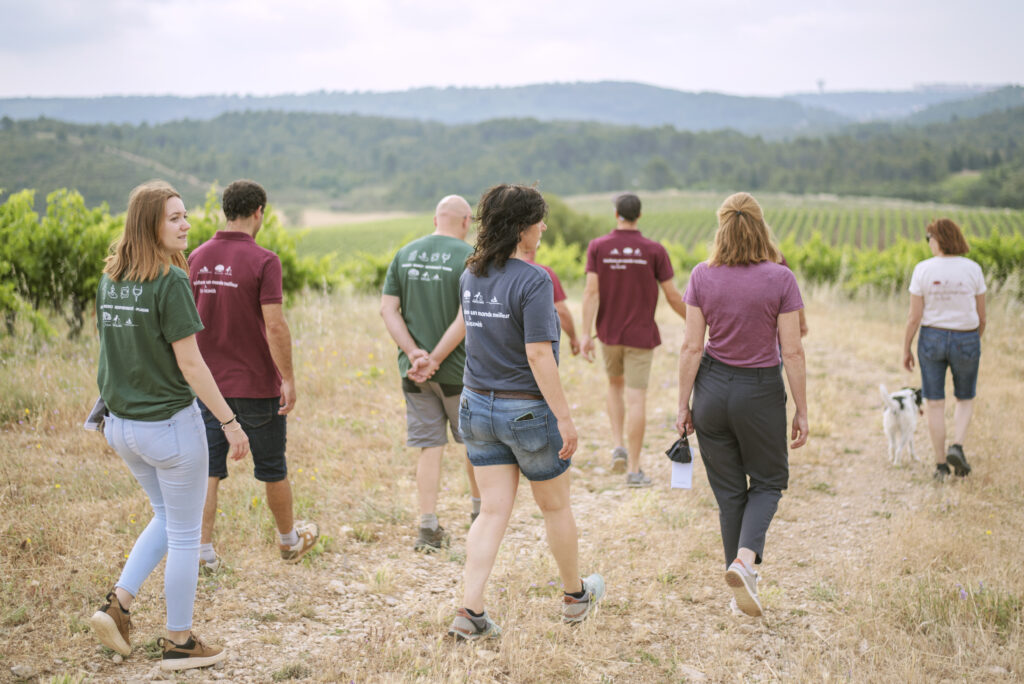
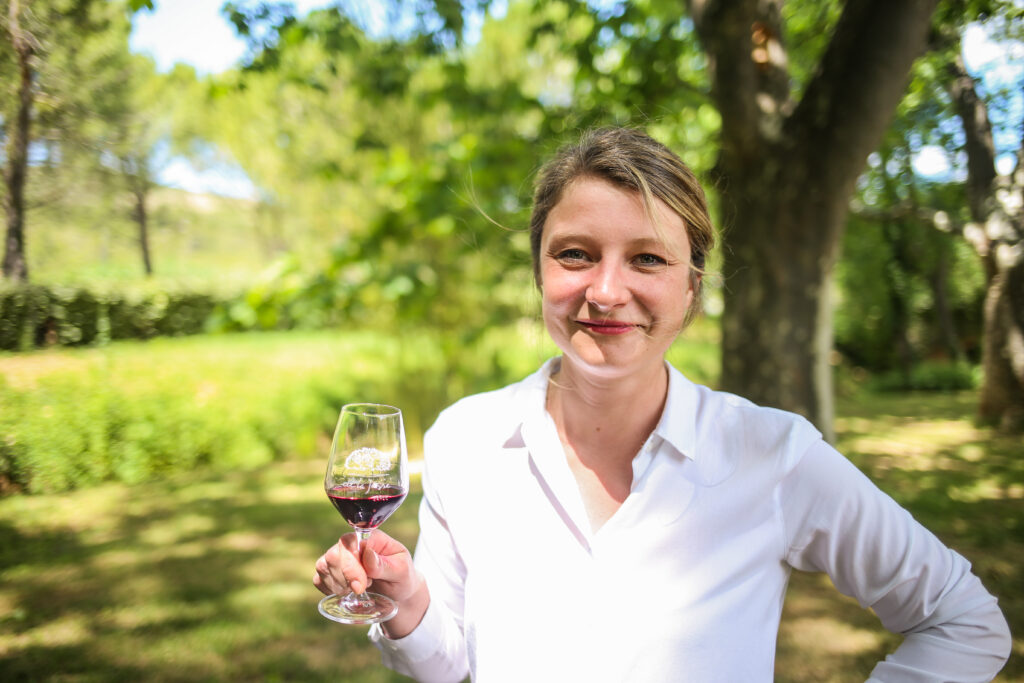
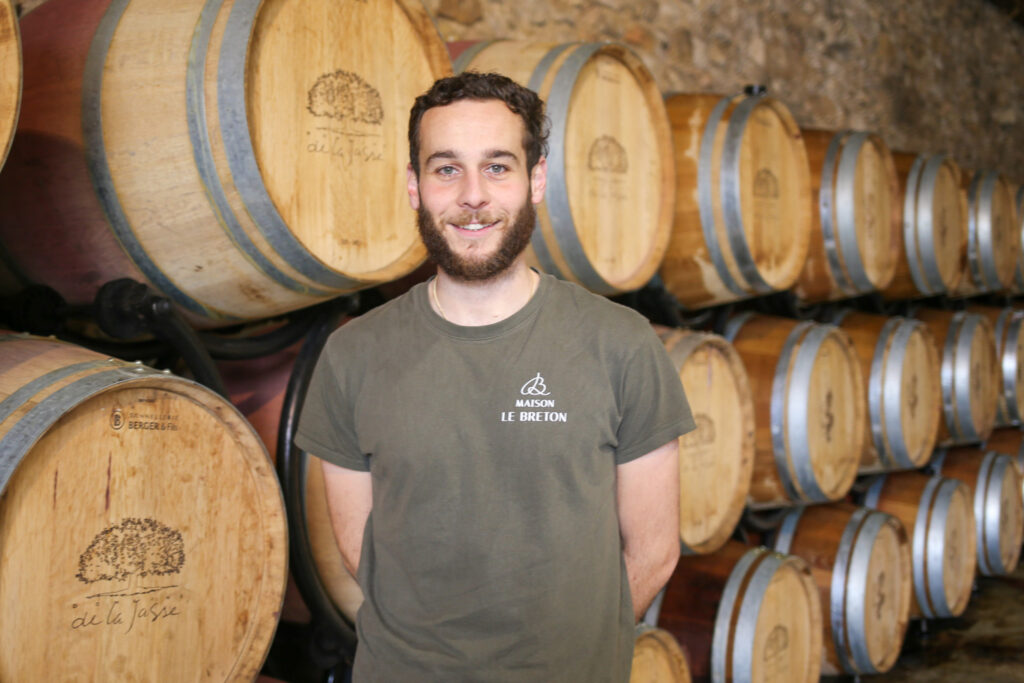
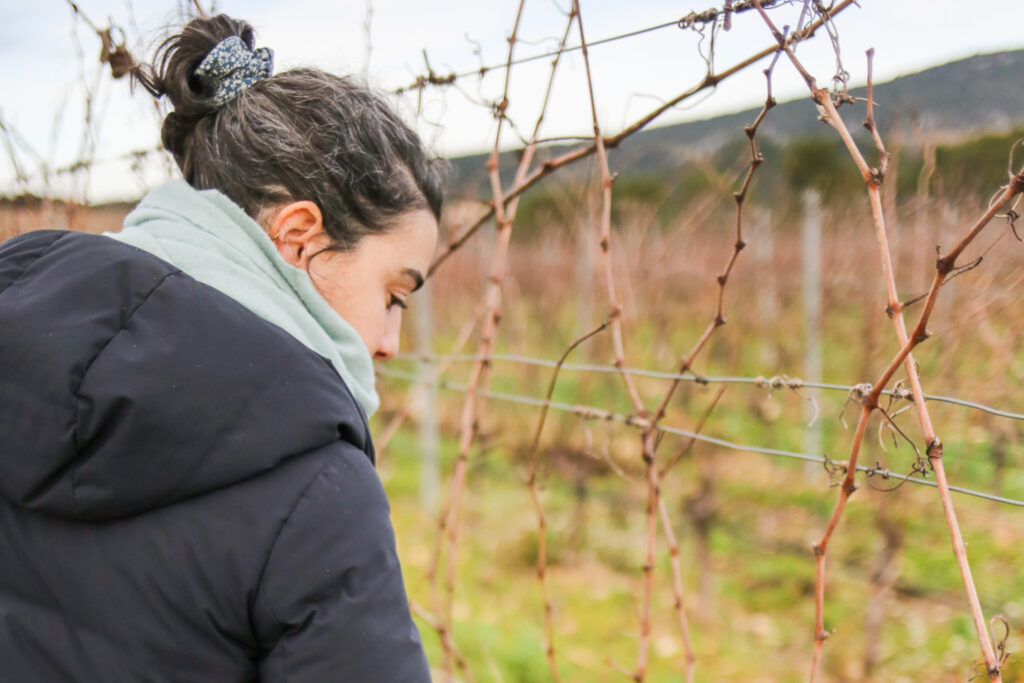
Sophie Monteillet
Portrait of the woman who welcomes and advises you
If you had to take a bottle to a desert island ?
"L'Andéol" from the Perrin Rasteau family! It's a dry, powerful Côte du Rhône. If I take it to a desert island, it's to rediscover the sensations and memories of Sunday meals, oven-roasted chicken accompanied by this popular cuvée with its notes of black fruits...
What's your favourite dish to cook?
I love to cook and to innovate in the kitchen, sometimes with varying degrees of success! The dish I cook best is lasagna, with a special mention for Big Mamma's ‘Big Lasagna’ recipe. Pasta with tomato sauce; I particularly value home-made products.
A surprising but delicious food and wine pairing?
Dessert pairings are the most surprising for me. I had the opportunity to pair a delicious ‘declinaisons de pistache’ pastry with a soft Jurançon, a delight ! Special mention to Pâtisserie Emily - Victor Hugo in Toulouse.
What do you particularly like about the company?
The working environment is particularly pleasant and the conditions are right for us to develop professionally. There are always lots of new projects, which is very rewarding and motivating. It's great to be involved and innovative!
Arthur Taix
Portrait of the master conductor in the cellar and in the storehouse
If you had to take a bottle to a desert island?
Saint-Peray from Domaine de la Sarbèche. It was there where I did my first BTS internship, giving me my first taste of the wine world. And it's also a very good "cuvée" !
A challenge you particularly like in this company?
Making good wine is a challenge in itself, but you also have to do it well... For me, there is nothing more challenging and stimulating than adding a framework and demanding stages to the process of making good wine !
Your ideal cellar ?
Without hesitation: a circular cellar. A single row of vats arranged in a circle, alternating between shiny stainless steel vats and old French oak truncated cones. A combination of tradition and innovation !
What's the key word in your job ?
Passion and Patience. You have to be passionate to be able to wait sometimes 6 years between the planting of a vine and the first bottle ! But this patience is very often rewarded in my job !
Violette Sornin
Portrait of the woman who whispers in the ear of our vines
If you had to take a bottle to a desert island ?
‘Les Mailles à l'Endroit’ from the Domaine Les Grandes Vignes (Maine-et-Loire). There's nothing like a good, tight Chenin to be enjoyed chilled on a desert island under a 30 degree sun !
How did you get into the world of winegrowing?
When I was 5, I was coming home from school with my best friend, who was talking about cathechism. When she mentioned the name "Saint-Joseph", I immediately interrupted her by explaining that it wasn't a person but a wine... the path was clear !
If you had to explain your job to a child, how would you do it?
You can say that I'm kind of the vine's pediatrician. I watch it grow and cure it if it's not doing well.
If you could plant a vine anywhere in the world, where would it be ?
I would go to a volcanic island because phylloxera (an insect pest) is not present there, so vines can be grown directly without rootstocks... in short, Lanzarote would be the perfect landing place!
